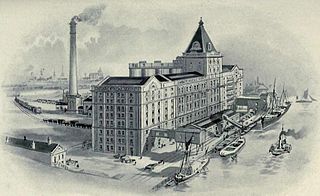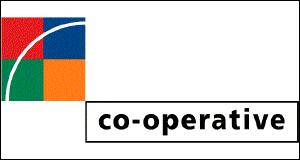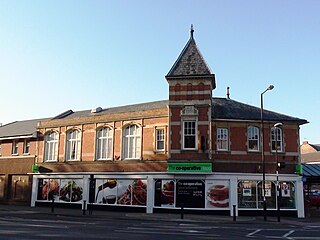Glanbia plc is an Irish global nutrition group with operations in 32 countries. It has leading market positions in sports nutrition, cheese, dairy ingredients, speciality non-dairy ingredients and vitamin and mineral premixes. Glanbia products are sold or distributed in over 130 countries. While Europe and the USA represent the biggest markets, the Group are continuing to expand into the Middle East, Africa, Asia Pacific and Latin America. Glanbia's primary listing is on Euronext Dublin. The Group has four segments; Glanbia Nutritionals, Performance Nutrition, Glanbia Ireland and Joint Ventures & Associates, with a combined workforce of over 7,000 employees in 32 countries.

Dame Pauline Green, is a former Labour and Co-operative Member of the European Parliament and former Leader of the Parliamentary Group of the Party of European Socialists (PES). As leader of the PES, she had a central role in the controversy surrounding the failure to discharge the European Commission (EC)'s 1996 budget, bringing the first motion of censure against the commission but voting against it. She then changed her position following corruption allegations raised by EC official Paul van Buitenen to call for Jacques Santer to react promptly or be sacked. Green lost the leadership of the PES in 1999, which was attributed in part to her handling of the incident.

A co-operative wholesale society, or CWS, is a form of co-operative federation, in this case, the members are usually consumer cooperatives. According to co-operative economist Charles Gide, the aim of a co-operative wholesale society is to arrange “bulk purchases, and, if possible, organise production.” In other words, a co-operative wholesale society is a form of federal co-operative through which consumers co-operatives can collectively purchase goods at wholesale prices, and in some cases collectively own factories or farms.
Arthur Stanley Newens was a British Labour Co-operative politician. He was a Member of Parliament (MP) from 1964 to 1970 and 1974 to 1983, and a Member of the European Parliament (MEP) from 1984 to 1999.

The Royal Arsenal Co-operative Society (RACS) was a large consumer co-operative based in south east London, England. The co-operative took its name from the Royal Arsenal munitions works in Woolwich and its motto was: "Each for all and all for each". In 1985 it merged into the national Co-operative Wholesale Society.

Co-operative Retail Services was the second-largest consumer co-operative society in the United Kingdom. In 2000, it was dissolved by its members, merging with the larger Co-operative Wholesale Society, to form the Co-operative Group (CWS) Ltd.
Milk for Spain was a British relief operation for the victims of the Spanish Civil War. Labour activists from the Co-operative Union along with the Labour Party set up the relief effort.
The United Kingdom is home to a widespread and diverse co-operative movement, with over 7,000 registered co-operatives owned by 17 million individual members and which contribute £34bn a year to the British economy. Modern co-operation started with the Rochdale Pioneers' shop in the northern English town of Rochdale in 1844, though the history of co-operation in Britain can be traced back to before 1800. The British co-operative movement is most commonly associated with The Co-operative brand which has been adopted by several large consumers' co-operative societies; however, there are many thousands of registered co-operative businesses operating in the UK. Alongside these consumers' co-operatives, there exist many prominent agricultural co-operatives (621), co-operative housing providers (619), health and social care cooperatives (111), cooperative schools (834), retail co-operatives, co-operatively run community energy projects, football supporters' trusts, credit unions, and worker-owned businesses.

A consumers' co-operative is an enterprise owned by consumers and managed democratically and that aims at fulfilling the needs and aspirations of its members. Such co-operatives operate within the market system, independently of the state, as a form of mutual aid, oriented toward service rather than pecuniary profit. Consumers' cooperatives often take the form of retail outlets owned and operated by their consumers, such as food co-ops. However, there are many types of consumers' cooperatives, operating in areas such as health care, insurance, housing, utilities and personal finance.

Dairy Farmers of America Inc. (DFA) is a national milk marketing cooperative in the United States. DFA markets members' raw milk and sells milk and derivative products to wholesale buyers both domestically and abroad. Net sales in 2016 were $13.5 billion, representing about 22 percent of raw milk production in the United States.

Denis O'Donnell was a well-known entrepreneur in County Kerry, Ireland, in the early 1900s. He was the prime organiser, co-founder, and first manager of the Lee Strand Cooperative Creamery, established based on his wide experience and influenced by the cooperative movement of Sir Horace Plunkett and the emerging spirit of national self-sufficiency.
Associated Co-operative Creameries (ACC), formerly CWS Milk Group, was a subsidiary and operating division of the Co-operative Group.
The history of the cooperative movement concerns the origins and history of cooperatives across the world. Although cooperative arrangements, such as mutual insurance, and principles of cooperation existed long before, the cooperative movement began with the application of cooperative principles to business organization.
The Socialist Party of British Columbia (SPBC) was a provincial political party in British Columbia, Canada, from 1901 to 1905. In 1903, the SPBC won seats in the Legislative Assembly of British Columbia.
The Irish Agricultural Organisation Society (IAOS) was an agricultural association in Ireland which advocated, and helped to organise, agricultural cooperativism, including mutual credit facilities. From its establishment by Sir Horace Plunkett in 1894, it quickly became an important element of the Irish economy and laid the foundations of the successful Irish dairy industry.
The Irish Co-operative Organisation Society (ICOS) is a co-operative organisation in the Republic of Ireland. With its roots in the Irish Agricultural Organisation Society, ICOS promotes commercial co-operative businesses and enterprise, across multiple sections of the Irish economy.
Overton-on-Dee railway station was a station to the southeast of Overton-on-Dee, Wrexham, Wales at Lightwood Green. The station was opened on 2 November 1895 and closed on 10 September 1962.
Margaret Elinor Burns was a British communist, co-operative activist and suffragist.
Aurivo Co-operative Society Limited is an Irish agricultural cooperative based in Sligo, County Sligo, Ireland. With its catchment area mostly in the North West, Aurivo processes an annual volume of approximately 500 million litres of milk, making it one of Ireland's largest dairy co-operatives. Formed after the 2000 merger of North Connacht Farmers Co-operative and Kiltoghert Co-operative Agricultural & Dairy Society, by 2021 it had over 10,000 farmers members and reported an operating profit of €12.6 million from a turnover of €570.2 million.







